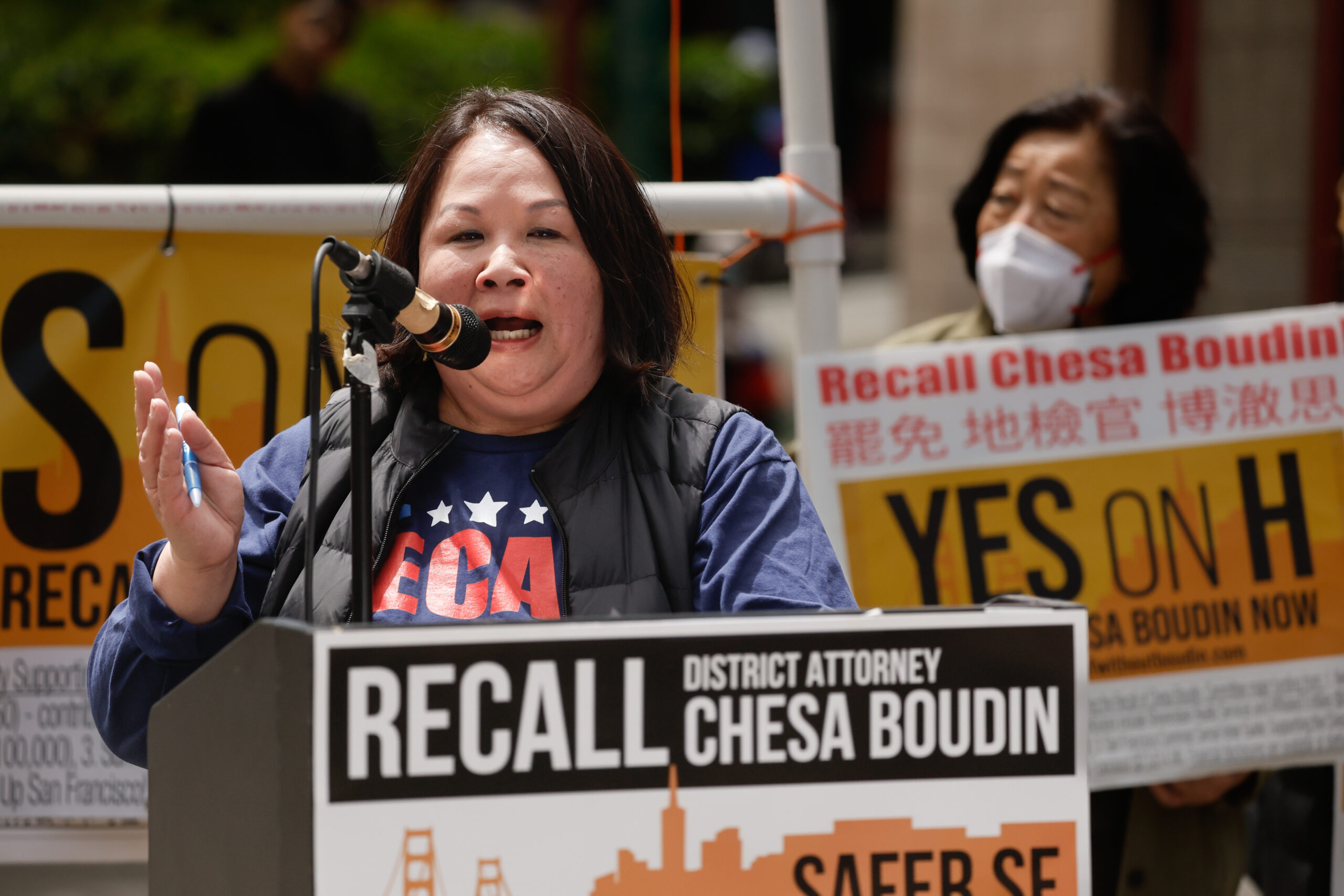A powerful bloc of voters led by Asians and affluent white residents drove support for Tuesday’s recall of District Attorney Chesa Boudin, according to election day results by voting precinct. The anti-recall campaign, by contrast, failed to make inroads beyond the city’s progressive strongholds.
The latest data available shows Proposition H, the ballot measure, passing by about 60-40 citywide. That’s a clear majority, but support was hardly uniform across SF. Neighborhoods where support for the recall exceeded 80% included precincts in the Marina, Visitacion Valley and around Lake Merced. Put together, it tells a story of a recall support coalition between affluent, whiter neighborhoods and Asians from across the economic spectrum.
Asians, who make up 36% of the population in San Francisco, supported the DA recall significantly more than other racial groups. And Black voters, who played a key role in keeping progressive DAs in Philadelphia and in Chicago in office, make up only 6% of San Francisco’s population.
Areas where support for the recall was under 40% included neighborhoods in Bernal Heights and Upper and Lower Haight. According to the progressive voter index, those are the two most progressive districts in San Francisco.
With almost half of the ballots still uncounted, voting patterns could shift once all results are in, though the broad strokes are likely to remain the same, said political analyst David Latterman.
“The margin may shrink a little, but it won’t matter,” he said.
Jason McDaniel, an associate professor of political science at San Francisco State University, said that Boudin’s anti-recall campaign failed because he was unable to drum up support outside the city’s hardcore progressive areas.
“Progressives can do well when they can expand geographically beyond their core, but this election’s results do not reflect that,” he said.
Relative to February’s school board recall, in which three commissioners of the city’s Board of Education were ousted by even larger margins, Boudin was able to make some gains.The Castro and Noe Valley, neighborhoods that decisively favored the school board recall, also chose to retain the embattled DA. McDaniel attributed that to Boudin’s overwhelming support from existing institutions: Most political clubs and politicians were against the recall, and established media outlets like the San Francisco Chronicle also were against the recall. (The Standard does not endorse candidates.)
Of the precincts that voted over 80% for the recall, about half came from the Marina, an area that is demographically whiter and wealthier than the rest of San Francisco. Other whiter, wealthier areas like Pac Heights, Sea Cliff and Presidio Heights also voted strongly to recall Boudin, though none so much as the Marina.
Other areas that voted over 80% for the recall were those with lots of Asian residents: precincts near Lake Merced and Lowell High School—also the precincts that voted the most for the school board recall—and precincts near Visitacion Valley.
About 80% of the Chinese American Democratic Club’s members supported the recall, according to president Brian Quan. Quan said Boudin, despite making a concerted effort to reach Asian voters, failed to communicate his policies effectively.
“No one knew what he was trying to accomplish other than trying to reduce sentencing for basically everyone,” he said. “Asians aren’t a monolithic voting group, but a lot of the longer time residents felt the new narrative around decarceration wasn’t being applied in a sensible fashion.”
